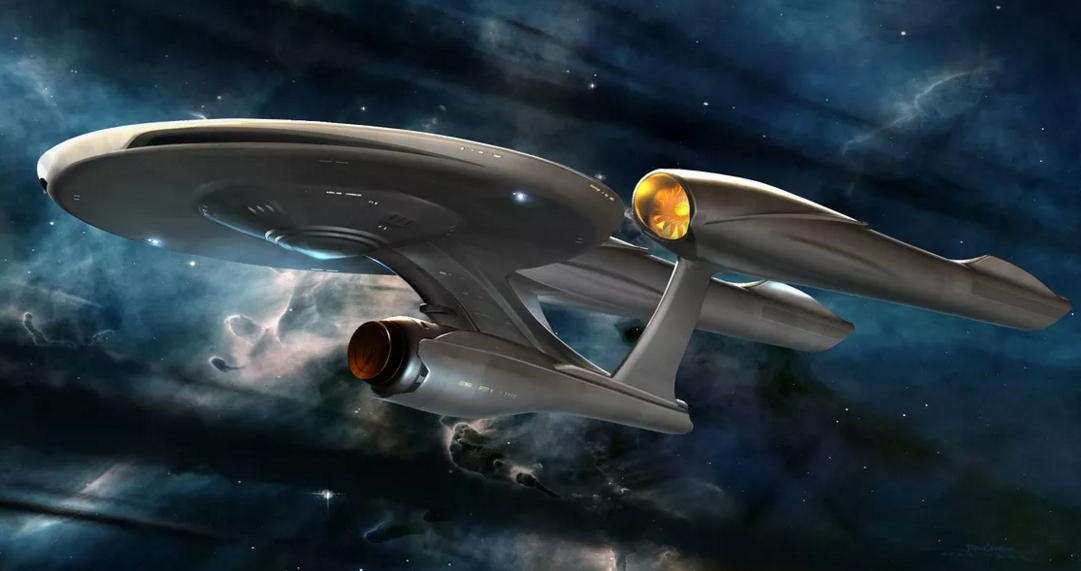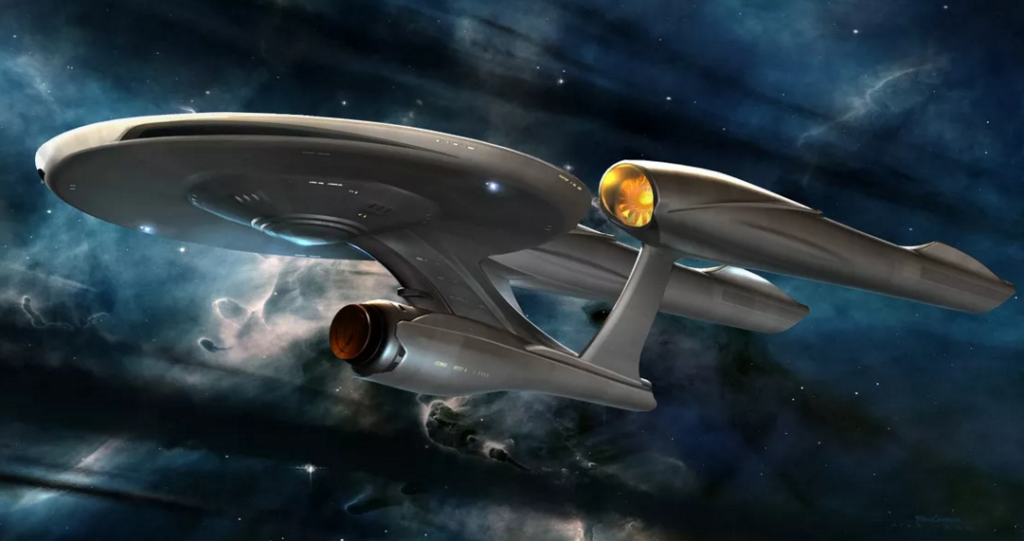
StarTrek Economics, Post Work and Automated Luxurious Abundance
One of my favorite series, as a young 12 year old girl growing up in Portugal, was Star Trek. I remember how I waited anxiously for Star Trek’s weekly episode, to travel with them to distant lands. I loved their adventures throughout space, their random encounters with societies different from their own, and particularly, I truly enjoyed the ethos of the series. Contrarily to the grown ups catastrophic discourses that surrounded me, of permanent economic crisis and the dystopian storytelling of other sci-fi series, I profoundly identified with Star Trek´s ideal world, where it seemed that essentially, everything had worked out.
I´ll never forget the famous episode in which commander Jean-Luc Picard tried to explain to Ralph Offenhouse from the 20th century, that there would be no need for the money of his law firm:
“A lot has changed in three hundred years. People are no longer obsessed with the accumulation of ‘things’. We have eliminated hunger, want, the need for possessions.”
Ralph Offenhouse, was a Human financier that in the late 20th century had been diagnosed with terminal cardiomyopathy. He had himself cryogenically frozen, only to wake up 400 years later in a moneyless world, where his bank accounts didn’t exist anymore.
Still stuck in the logic of capitalism Offenhouse expressed chock with the economic world of the 24th century. During the 90s, capitalist Ralph had successfully pursued profit and self-interest, in tune with the values of his time (which were the same as the ones at the onset of the industrial revolution when philosopher Adam Smith had set the discourse on how dependence on the profit motive and on individual rewards based on private ownership, were the archetypal features of capitalism).
Self interest and the pursuit of profit were the driving forces of the world, due to its implicit mindset of not enough, scarcity.
Innovating our way out of capitalism
The interesting aspect of Star Trek, in terms of economics, is how it problematizes the scarcity/abundance paradigm.
The cult series has been the object of renowned interest lately, concerning its depiction of an economic model of abundance, as described in the book Trekonomics: The Economics of Star Trek published one month ago (May 2016).
Even though we are not in the 24th century, fast forward to the 21st century we live now in another historical period where the importance of personal self-interest as the key trigger for the growth of a business, seems not to be working anymore. This comes with the widely spoken acknowledgement that profits ( that can also be seen as the carrot in the carrot/stick dyad existing at the core of capitalism) have fallen.

The irony is that the reason of falling profits is a causal mechanism at the centre of capitalism itself: “Disruptive Innovation”.
In a nutshell, disruptive innovation is a mechanism resulting from the drive to look for better and cheaper products. The result of disruption is that it reduces marginal costs to such a small value, that the margin for profits keeps falling.
This is no news to anyone. While some dare to call the current economic landscape a zero marginal cost economy others are trying to describe what they call a postcapitalist new economic paradigm. According to Jeremy Rifkin’s book The zero marginal cost society:
“The democratization of manufacturing means that anyone and eventually everyone can access the means of production, making the question of who should own and control the means of production irrelevant, and capitalism along with it.”
Marginal costs can be defined as the cost of producing additional units of a good or service, if fixed costs are not counted. While economists have always welcomed a reduction in marginal cost, they never anticipated the possibility of a technological revolution that might bring marginal costs to near zero, making goods and services priceless, nearly free, and abundant, and no longer subject to market forces. A good example of such a product is an ebook.
In his book, Rifkin traces a new type of economic system resulting from an abundance of goods and services that are increasingly cheaper. Zero marginal cost, result from the entrepreneurial drive of looking for ways to make cheaper products, to beat the competition. The result of innovation, though, in purely economic terms, is the creative destruction Joseph Schumpeter described.
What will happen to growth and jobs in a zero economy?
Two key issues of the new economics equation defining post-capitalism, are the role of work and growth in the new ecossystem. If the costs and profits of doing anything are close to zero, due to technological innovation, what will happen to jobs ? Let’s not forget that technology means automation. Could post capitalism be a synonym to the robot economy?
Another key issue is growth. As we all know, economic growth, particularly in the West, is actually slowing down. Forecasts of low growth, negative interest rates and stagnant and/or declining wages in the western world, invade the news every day. Don´t be fooled by startup unicorns sold by billions of dollars. Those too, hardly ever make any profit, and their gigantic deals result from speculation and fantasist valuations, inflated artificially, to meet the expectations of investors.
Interestingly, according to this hypothesis, even without (monetary) growth, there is abundance. In his recent book “PostCapitalism,” Paul Mason eloquently addressed the paradoxes of the system in which we live now:
“the main contradiction today is between the possibility of free, abundant goods and information; and a system of monopolies, banks and governments trying to keep things private, scarce and commercial.”
During the last Davos meeting (2015), the WEF announced how we are speedily heading to a 4th Industrial Revolution where automation will lead to post work… within abundance. Will we all have abundantly, just like in Star Trek, everything we need, by using replicators (3D printers) ?
Going Where No One Has Gone Before Part 2

Maria Fonseca is the Editor and Infographic Artist for IntelligentHQ. She is also a thought leader writing about social innovation, sharing economy, social business, and the commons. Aside her work for IntelligentHQ, Maria Fonseca is a visual artist and filmmaker that has exhibited widely in international events such as Manifesta 5, Sao Paulo Biennial, Photo Espana, Moderna Museet in Stockholm, Joshibi University and many others. She concluded her PhD on essayistic filmmaking , taken at University of Westminster in London and is preparing her post doc that will explore the links between creativity and the sharing economy.










